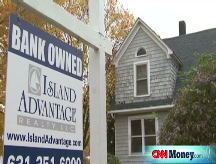Big business to the rescue - for now
A surprising jump in durable orders is a good sign for the economy. But how much longer can demand hold up in the wake of a possible global consumer slowdown?

NEW YORK (CNNMoney.com) -- Corporate America is keeping the economy afloat. But some economists worry that it can't last.
The government reported a surprising 0.8% increase in durable goods orders for June this morning. Economists were expecting orders to fall 0.3% from May levels, according to Briefing.com.
This report is important since it shines a light on the health of the manufacturing sector. Durable goods are defined as products that have a long shelf-life - three years or more - and includes stuff like cars, aircraft, computers and communications equipment.
To be sure, this report tends to be very volatile. And if you look more closely at the June figures, the overall rise in orders has a lot to do with military spending. Excluding defense, orders were up just 0.1%.
Nonetheless, the resilience in manufacturing could be an indicator that economic growth may be better-than-forecast in the second quarter. Economists are currently predicting a 1.8% increase in gross domestic product (GDP) for the quarter.
Oscar Gonzalez, economist with John Hancock Financial Services in Boston, said he's expecting GDP to be up between 2% and 2.5%. The first reading on second-quarter GDP will be released on July 31.
Gonzalez added that the increase in orders may be mainly driven by exports, not healthy demand for durable goods from U.S. companies and consumers.
Still, good news is good news. "The big question that comes to mind about the durable report is whether this is going for domestic consumption or foreign activity? Either way, it's obviously a good sign. Businesses will probably crank up production."
Stocks rose Friday morning, in part due to the durables numbers. Also helping lift investor sentiment was a stronger-than-anticipated report on new home sales for June as well as a higher-than-expected reading on consumer sentiment from the University of Michigan.
But will this be enough to keep the economy growing in the third and fourth quarters?
Keith Hembre, chief economist with First American Funds, isn't so sure.
"The data from overseas lately has been on the soft side. Slowing profits and economies abroad as well as weakness in domestic consumption is likely to weigh on orders as we move forward," he said.
Hembre added that another part of the durables report, the ratio of inventories to shipments, is at a high not seen since the recession of 2001. So he thinks that with this in mind, businesses may not necessarily have reason to increase their output dramatically.
But even if they do, Gonzalez said that he doesn't expect increased orders and shipments to lead to job growth in the manufacturing sector. He said businesses are more likely to rely on increased productivity and squeeze more out of existing workers.
So the relative strength from manufacturing may only be temporary. And that means consumers are going to have to hold their own in order for the economy to not deteriorate further.
Can that happen? The housing market, despite the new home sales report, is in undeniably bad shape. Existing home sales in June fell 2.6% from May and hit a 10-year low. Foreclosures in the second quarter surged more than 120%.
That is clearly taking its toll on consumers, and their spending makes up more than two-thirds of GDP.
Still, as I argued earlier this week, consumer spending has yet to decline despite all the dreary economic news. But with the stimulus from the tax rebate checks likely to fade in the second half of the year, consumers may find it tougher to keep spending unless oil and gas prices continue to slide.
Fortunately, the average price of gas inched closer to falling below $4 a gallon on Friday. Oil prices slid on Friday as well. And as I pointed out yesterday, oil is likely to be the key to any sustained economic and market rebound.
"It's clear that high energy prices are keeping the economy dragging, along with the financial crisis and housing," Gonzalez said. "Until you see stability in one of those three areas, then we may have a better chance of a recovery. Oil hopefully will keep going down and that will help."
Issue #1 - America's Money: All this week at noon ET, CNN explains how the weakening economy affects you. Full coverage.
Have you had to raise cash this year for an unexpected expense? We're looking for people who got the cash by doing one of the following: Took out a home-equity loan, borrowed money from family or friends, borrowed against a retirement account such as a 401(k), sold a life-insurance policy. Is that you?
Drop us a line at realpeople@moneymail.com, and you may be spotlighted in Money magazine and on CNNMoney.com. Please tell us why you needed the cash, how much cash you raised by doing it, when you did it and if you were happy with your decision. Also please include your name, age, city, contact information and a recent family photo. ![]()



